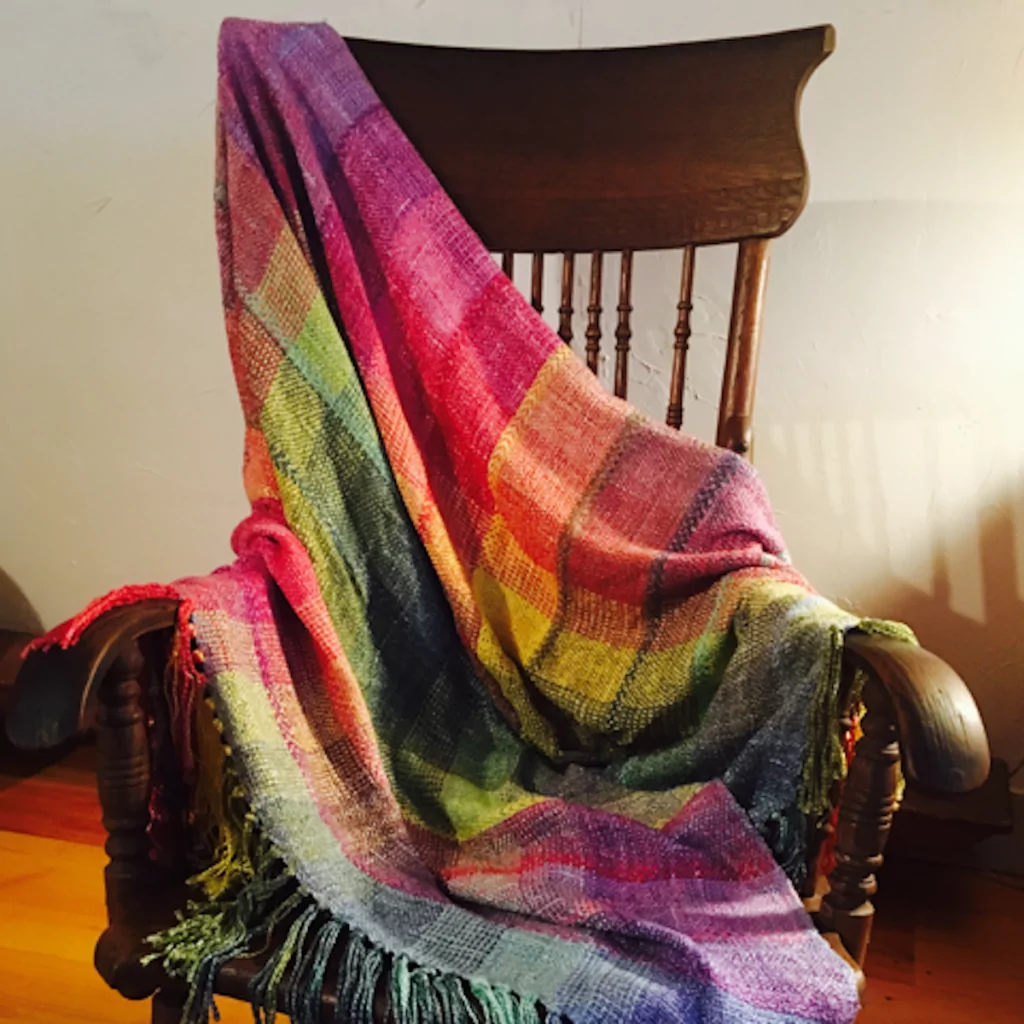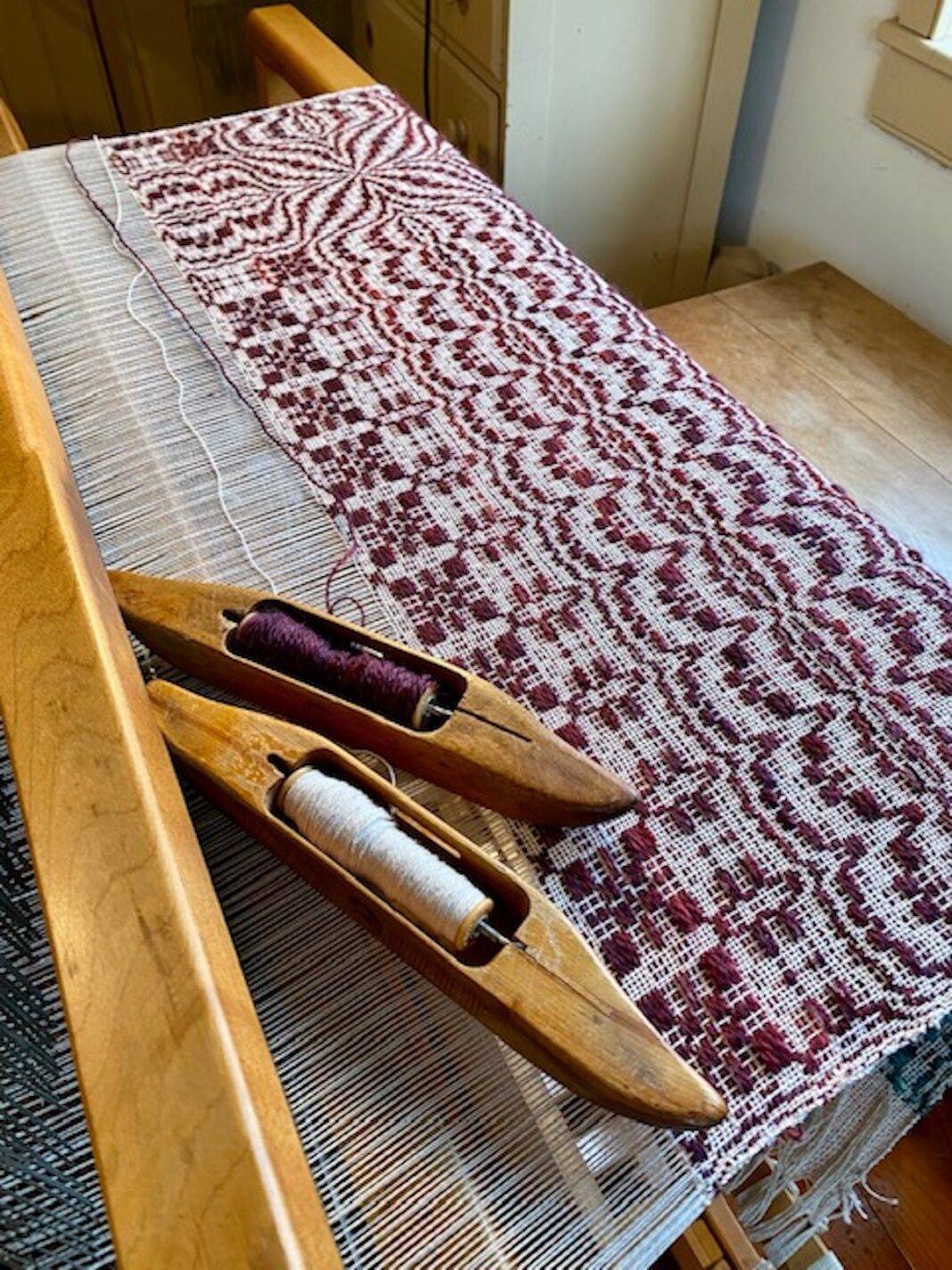Not only does Carol Tripp hand loom all of her blankets, throws, shawls, ponchos and scarves, but she also handles every aspect of production from farm to market. Tripp and her husband, Richard, start by raising the sheep. Then she spins and dyes the wool and weaves it on a handloom (as opposed to a power loom).
According to Tripp, all of these things make a difference in the look and feel of the finished products. “Part of the cachet is that our wool is hand spun, and it looks hand spun. There’s texture and a not perfectly standardized quality to it.”
Hand looming makes for softer, more resilient fabric due to less compact weaving. All in all, with the slight variations in texture and weave, Tripp’s products are unique and as close to those made in an earlier era as possible.

The Tripps own a farm in Lakeville, where they are currently raising seventeen sheep. They have six more at their home in Vineyard Haven. The flock is made up of Border Leicester sheep, which Carol prefers for the quality, softness, and luster of their wool. At the off-Island farm, Carol operates a studio for production and also teaches weaving.
The Tripps bought the derelict Lakeville farm in the 1970s, rehabbed it themselves, and started raising sheep for meat and wool. Before that, the two had worked as public school teachers at a Zuni reservation in New Mexico. It was there that Richard learned traditional Navajo weaving techniques. The couple still incorporates Native American patterns into many of their designs.
“I’ve always loved wool,” Carol says. “It’s a battle, because people say that they’re allergic or that it’s scratchy, but if you use really good fleece, that’s really not the case.” She also uses quality linens for some products and buys all of her dyes from a small company in Maine that sells non-toxic products, using only vinegar or salt for fixing.
“So much is made from petroleum products these days,” says Carol. “I like to keep everything as natural as possible.”
You can get the Tripps’ woolen goods in season at the Chilmark Flea Market, and the Oak Bluffs Open Market.

